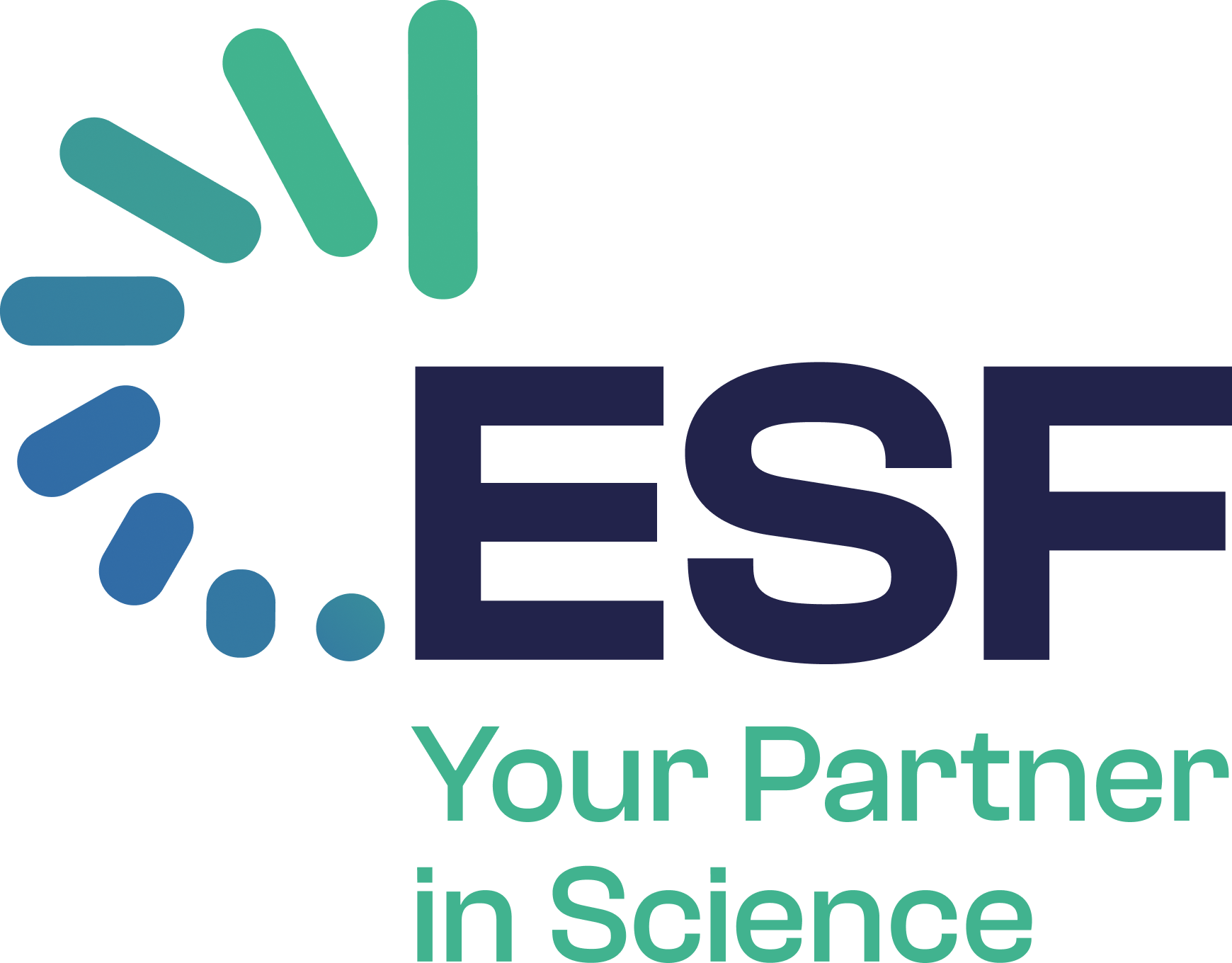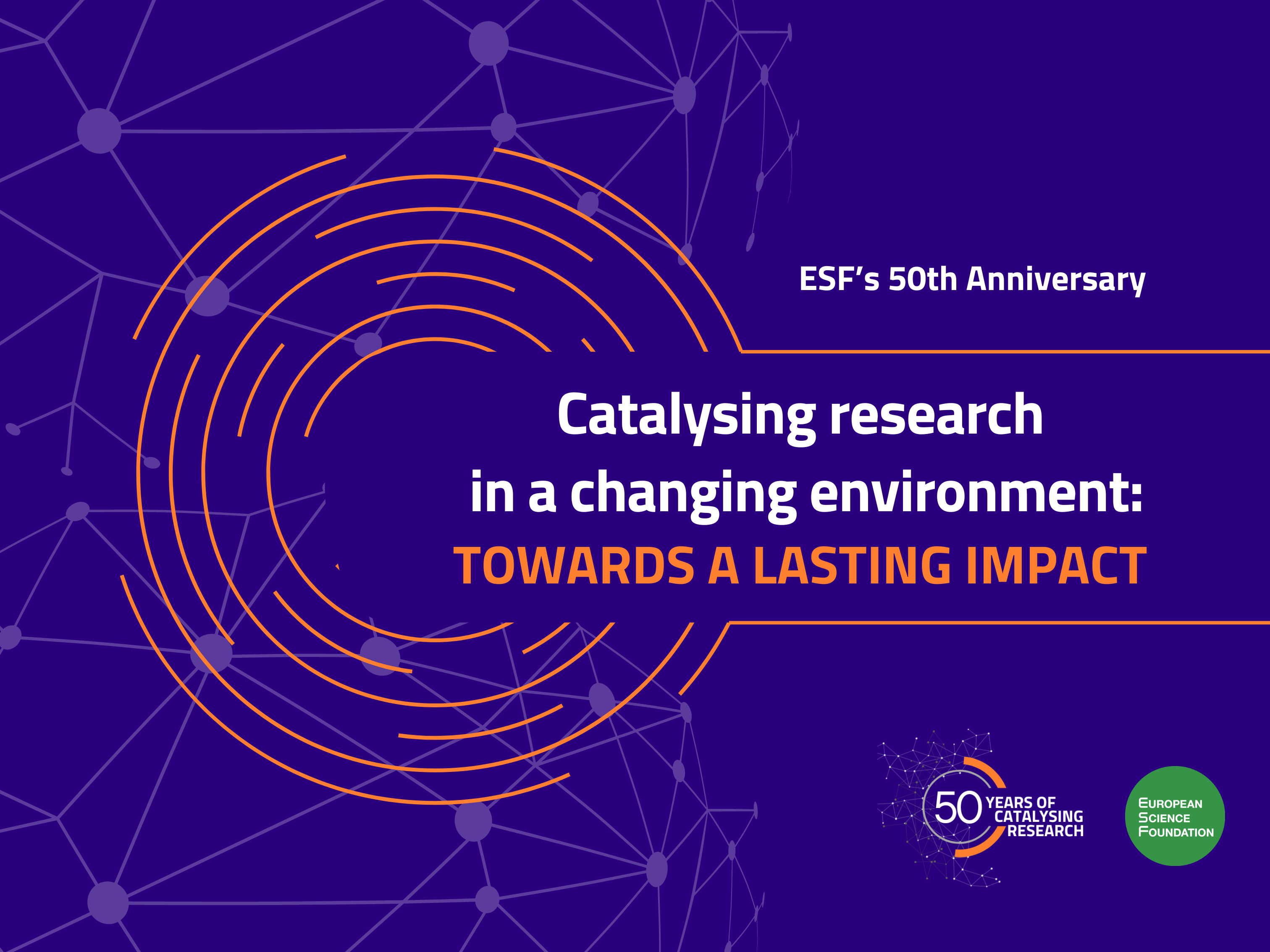ESF is celebrating its 50th anniversary!
Catalysing research in a changing environment: towards a lasting impact
26 June 2024, Strasbourg, Villa Sturm ( More details about the location are at the bottom of the page)
14:15 – 18:15 CET
Over the past 50 years, ESF has positioned itself as a major actor in catalysing research management at an international level. In recent years, its main lines of action have focused on connecting stakeholders and enabling the implementation of science operations, adapting to a rapidly changing research area and meeting new societal needs.
As ESF looks towards the years ahead, we reflect on the challenges related to improving the quality of research management, from grant evaluation and research assessment to projects, networks, and programme management. In the light of a changing European Research Area and ongoing crises, what does sustainable science management mean today? This anniversary event will showcase how an organisation such as ESF can meaningfully contribute to the European Research Area by exploiting a unique positioning, while exploring concrete pathways towards developing and implementing research initiatives that are relevant to societal needs and have a lasting and meaningful impact on various stakeholders, from better assessing research to building long-term networks, and encompassing responsible research and innovation values.
Overall programme
13:45 Welcome Coffee and Registration
14:15 Opening Speeches
Speakers:
- Véronique Halloin, FNRS, President of ESF
- Caroline Zorn, City Council of Strasbourg
- Nadége Hornbeck, Regional Council of Grand Est
14:40 Looking Back to 50 years of ESF
Speaker:
- Nicolas Walter, ESF CEO
15:10 Keynote: “Catalysing Research in a Changing Environment.”
Speaker:
- Ursula Bassler, CNRS
15:35 Session #1: “Addressing new challenges in the assessment of research proposals. ”
There is a broad agreement on the need to reform research assessment systems and recognize all the diverse set of outputs, practices activities and actors that contribute to excellence in present-day research realities. One specific focus of this reform is the evaluation of research proposals. In addition to its generic importance, what makes it unique in the context of ESF’s 50th anniversary celebration, is that it forms the intersection of ESF’s two important areas of activity: research quality assessment and grant evaluation support that ESF provides to a large number of European research funders and universities, and being the hosting organisation for the CoARA Secretariat. While the latter brings about a systemic, global and multi-stakeholder policy change, the former can be considered as an important area of application, adaptation to and testing of such high-level policy changes in practice. In addition, these changes are happening in the times of rapid technological advances related to Artificial Intelligence, which are already starting to impact research proposal assessment (and proposal writing). The panel brings together these two different perspectives for an exchange on changing evaluation criteria for research proposals as set by research funders, and the need to provide better guidance both to applicants and reviewers.
The session will include short presentations by three panellists, followed by a moderated discussion.
Moderators: Erzsébet Toth-Czifra, ESF and Julia Boman, ESF
Panellists:
- Jean-Emmanuel Faure, European Commission DG RTD
- Olivier Boehme, Research Foundation Flanders (FWO)
- Sarah de Rijcke, Centre for Science and Technology Studies (CWTS), University of Leiden
16:10 Coffee Break
16:40 Session #2: “Sustained Infrastructures for European Research.”
Since its inception in early 2000s, the European Research Infrastructure (RI) policy framework has significantly contributed to the development of a vast array of pan-European RIs across various themes, size and forms. These infrastructures have gone beyond merely providing access to advanced equipment; they have fostered integration by facilitating encounters between researchers and the exchange of good scientific ideas and practices throughout Europe. Over time, the policy focus and funding priorities have evolved to allow the development of strong entities such as the European Research Infrastructure Consortia (ERICs) and other European Strategy Forum on Research Infrastructures (ESFRI) Roadmap infrastructures, which are today major actors on the international scene. This evolution has led to reduced funding for other infrastructure networks that previously benefited from European Commission project support to develop their services. Consequently, these networks now face major challenges and are exploring strategies for their sustainability. Ensuring these entities have access to necessary support, collaborative frameworks, and strategic guidance is crucial for their continued success.
In this session, speakers will share their insights and experiences in navigating the new era in the RI policy. They will discuss strategies for maintaining and enhancing the value of smaller scientific infrastructures and networks in the face of evolving policy landscape.
Moderator: Oguz Ozkan, ESF RI cluster
Panellists:
- Jana Kolar, Central European Research Infrastructure Consortium (CERIC)
- Thomas Ruhtz, Free University of Berlin, European Facility for Airborne Research (EUFAR)
- Nigel Mason, University of Kent, Europlanet 2024 RI
17:15 Session #3: “Inclusive Science for an Inclusive Society. ”
The panel will put into perspective insights on Citizen Engagement, gender equality from an intersectional approach and research ethics, drawing on the experiences from Time4CS, PATTERN, WBC-RRI.NET, SUPPORTER, GenderSAFE, RESIST and ENFIELD projects. The session will include short presentations by three panellists, followed by moderated discussion between the panellists
As research is playing an increasingly pivotal role in addressing societal needs, the key players of science management in the European Research Area have shifted from the scientific community to a much wider variety of stakeholder organisations as of the quadruple/quintuple helix formulation including research performing and funding organisations, policy-makers, industries and civil society organisations, but also of individual stakeholders, at all levels of influence and of diverse profiles, including citizens. Moreover, in another dimension, an inclusive approach to science management can no longer be limited to engagement with top-level decision-makers and will embrace an intersectional, bottom-up approach. How does this apply in practice?
This session calls for a systematic institutional change towards inclusive science management, providing inspiring examples of applied science management that promotes engagement with a wide variety of stakeholders including citizens, gender+ equality as well as operational ethical framework to complex research endeavours.
Moderator: Ildi Ipolyi, ESF, Leader of the Inclusive Science Cluster
Panellists:
- Gitte Kragh, Aarhus University
- Veikko Ikonen, VTT Technical Research Centre of Finland
- Andjela Pepic, University of Banja Luka
17:50 Wrap-up with Key Messages
Speakers:
- Alain Beretz, University of Strasbourg
- Véronique Halloin, President of ESF
18:15 Networking Reception
Attendance to the event is upon invitation. To request an invitation, we invite you to submit your details in the following form.
More information: esf50[at]esf.org
%20-%20/user_upload/esf/ESF_50TH_anniv_logo___7_.png) **Villa Sturm, 1 quai Jacques Sturm, Strasbourg. A beautiful and central location, 17 minutes’ walk from the train station, 10 minutes by tram or bus. If you’ll be staying for the night, you’ll find suggestions for hotels here.
**Villa Sturm, 1 quai Jacques Sturm, Strasbourg. A beautiful and central location, 17 minutes’ walk from the train station, 10 minutes by tram or bus. If you’ll be staying for the night, you’ll find suggestions for hotels here.

